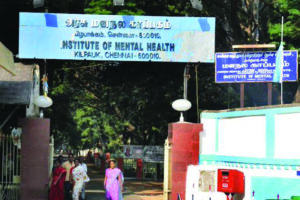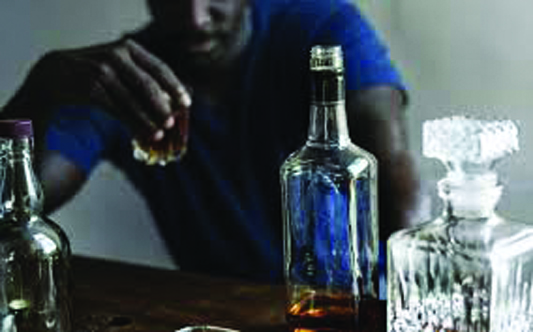CHENNAI, SEP 2
Excessive and, regular consumption of alcohol after a break due to COVID-19 lockdown induced dry phase has landed a number of men in “alcohol induced psychosis,” a mental condition marked by disrupted thinking, perceptions and behaviour, an expert said here on Wednesday.
Left with no other option, several people had been abstinent from alcohol for a considerable period of time during the lockdown, Assistant Professor of Psychiatry, Institue of Mental Health (IMH), Dr D Devi said.

The IMH, a renowned institution dedicated for mental health here is over 200-year old and it is among the largest and oldest government institutions. “When some people resumed regular and excessive drinking they landed in complications and sought our help. Had they not touched alcohol again, it would have done them a world of good,” she said.
Citing the case of a man, who resumed unrestrained drinking after a gap of months, she said, “this person lost his sleep, became restless, talked endlessly and roamed around which are manifestations of Alcohol Induced Psychosis (AIP).” “Psychosis is a mental condition, that includes disrupted or altered thinking, perceptions and behaviour,” the Assistant professor said.
An auto driver, the 40-year old man, did not have a drink for months due to lockdown restrictions and once he had access to alcohol with the easing of curbs, “he suffered because of his over-indulgence in alcohol,” she noted. “The sad thing is, his family also suffered. Since his wife was here in the hospital as attendant, the children had to be entrusted with relatives. Immoderate and habitual alcohol consumption affected not only this man, but also his family,” the psychiatrist said.
“We see a number of men with a similar profile. Really too much of alcohol to the point of not knowing if it was day or night,” she said adding wives of such men plead with doctors to admit them since their behaviour could be very unpredictable. Such men, diagnosed for AIP, were admitted as in-patients at the IMH for about a week. They were treated with anti-psychotics, anxiolytics, intravenous fluids and multivitamin supplements. After discharge, they were advised to continue to be on medications and visit the hospital periodically to ensure good health and prevent recurrence of AIP.
“Alcohol induced psychosis happens, in some cases, even during withdrawal (when people stay away from alcohol) and it is due to their dependence which is physical and psychological. We treat such people as well,” Dr Devi said.
When people with “severe alcohol dependence” had no access to drink during the initial phases of lockdown, they developed complications and they were successfully treated, she said adding such people should avoid alcohol altogether. Cautioning against alcohol dependence, she said excessive and regular drinking could lead to severe health issues both “physical and psychological” and may lead to health issues including alcohol induced psychotic disorder.
According to the International Classification of Diseases (ICD-11) of the World Health Organisation, alcohol-induced psychotic disorder is characterized by psychotic symptoms like delusions, hallucinations, disorganised thinking and behaviour that develop with intoxication from alcohol or during withdrawal from it.
The IMH, located at Kilpauk here is attached to the Madras Medical College. In Tamil Nadu, the state-run liquor shops were closed on March 24 evening when the lockdown was implemented for the first time. While the outlets resumed operations in May in the rest of Tamil Nadu, the shops here and in suburbs reopened on August 18.












